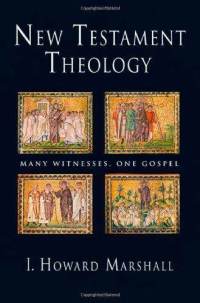 I. Howard Marshall's chapter of Luke in terms of Dogmas, Doctrines, Distinctives, and Details.* Dogmas. Marshall affirms all dogmas key to being “Christian.” The gospel of Christ is central, with repentance and lifelong discipleship to the Trinity as revealed in scripture. He shows that Jesus gave two options: to be or not to be His disciple, the former is costly, but far worse to give up and be the latter (136) and the greatest sin is failure to recognize and respond to God's message (142). While the historical assessment of Luke is postponed (130, 132), the idea that it is “historical fiction” is denounced and Bultmann's existential view is denigrated, positing that the Synoptic Gospels only have force if they are “salvation history” (141, ftnote). However, scripture could be lauded more. The Mission of God is rightly seen as the integrating motif. Marshall bluntly states that Jesus' “mission is summed up as that of the shepherd who goes out to look for and to rescue those who are lost” (138). Marshall even rightly prioritizes eschatological dualism (a Distinctive), questioning Hans Conzelmann's view that the realization of delay led to the church's later motivation to be effective witnesses of the church, instead seeing the early Christians theology as “salvation-historical” right from the start (145). Thus, from the songs of Mary and Zechariah “concerned with God's action for the sake of his people” and “salvation in terms of forgiveness and light” (131) to the passing of the baton at the Great Commission (140), “the character of the career of Jesus is best summed up as mission.” (149). Unfortunately, he seems to allude that this mission was recognized only after the transfiguration (134). Christologically, Jesus is seen as prophet, messiah, and king, with emphasis on prophet (146). Sadly the significance of the “Son of Man” title seems to be downplayed (147), but Marshall sums up Christ's many types and roles as being fulfilled simultaneously in an unimagined reshaping well (149). Doctrines. Marshall sometimes throws biblical authenticity under the bus (i.e. “the Spirit somehow also brings the Messiah to birth,” but still acknowledges its greater meaning. Surprising, he also says that Jesus was an itinerant preacher who spoke “ad hoc” without systematically developing a theme (134), but redeems himself by later identifying the theme of Jesus' preaching as the Kingdom of God using “the vocabulary of salvation to indicate its significance” (which fits the Mission of God motif). Distinctives. Marshall's Arminianism is sure to point out that God's mission is not accomplished deterministically since people behave “normally and respond freely to God” (142). However, Marshall quickly affirms the biblical tension of God's simultaneous sovereignty (Dogma level issue). Other lines seem to allude to losing one's salvation: “danger of turning back,” saltiness can't be restored etc. (150). Marshall's social agenda emerges in detecting an “implicit” point that the “well-off have achieved their position by evil behavior” at the expense of the deprived (133). He may take his own interests too far seeing the three parables of God's concern for the lost as “apparent that Jesus' concern was for the outcasts of Jewish society” (136). He even sees the wise use of wealth as the central point of the rich man and Lazarus. To his credit, Marshall does temper this by saying that the “Nazareth manifesto” is not to be taken literally as economic liberation, but spiritually with wider effects (144). Kudos is due to Marshall for affirming that Jesus preached an “already” aspect of the kingdom instead of an entirely future position (135 ftnote), which Masrhall later asserts directly over the Kingdom “suddenly coming in the future” or worse “being a spiritual entity 'within' them” (137). Details. Marshall's stance on the already/not yet Kingdom downplays Preterist views and affirms the Son of Man's judgment as being part of a final judgment. It falls under Detail assuming the language regarding separation to different fates is eschatological and not solely to Jerusalem 70AD in order to write off Jesus' words to maintain a view of Universal Salvation. Marshall assumes Markan priority and Lukan authorship (130).
*Dogmas are theories directly impacting God's mission to reconcile all people to Himself (orthodoxy & orthopraxy required).
Doctrines indirectly impact God's mission (and are thus vitally important), but people can fail to interact with or understand them accurately (essential to orthodoxy, not orthopraxy). Distinctives don't affect the orthopraxy of salvation, but will impact the orthopraxy of a church. Details have little to no effect on orthodoxy or orthopraxy.
0 Comments
Leave a Reply. |
AuthorBrett Yardley: Categories
All
Archives
January 2019
|

